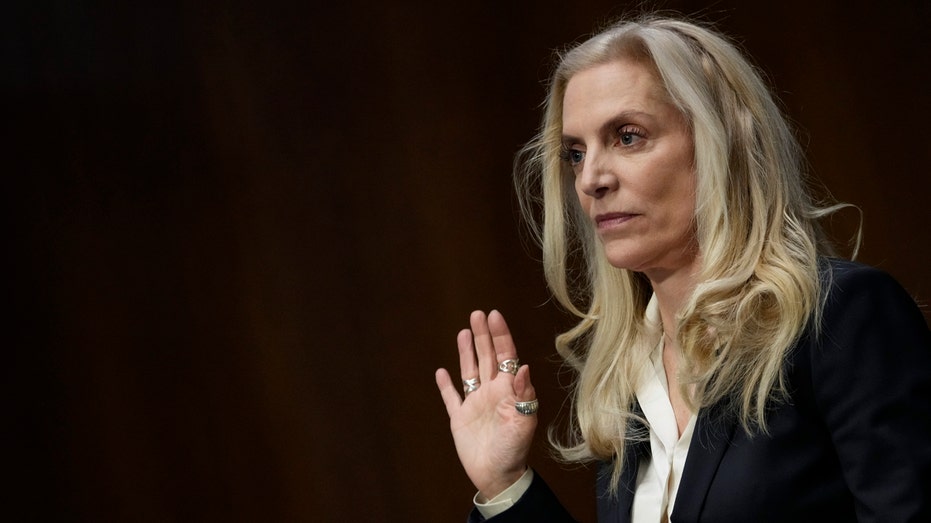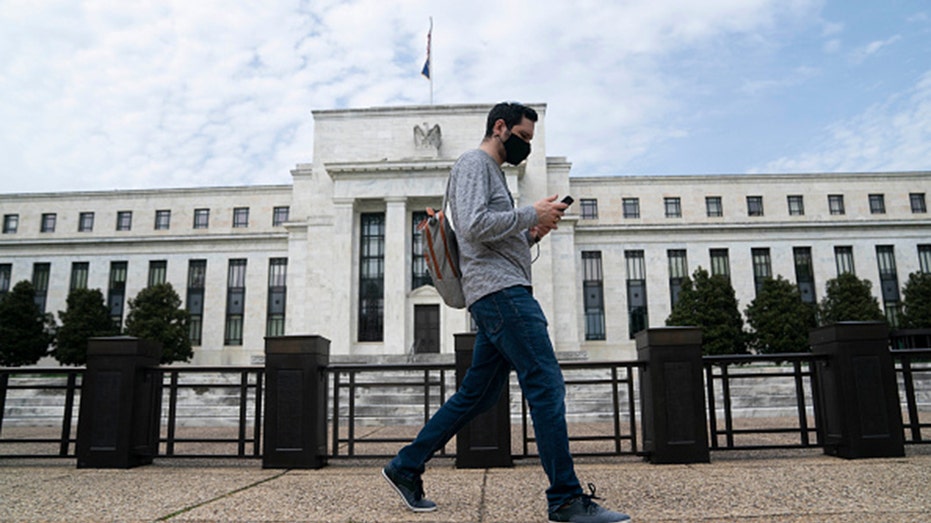Fed's Brainard hints at aggressive policy tightening as inflation roars
Brainard says Fed officials could 'rapidly' reduce $9T balance sheet
Strong job market, high inflation rate ‘tale of two economies’: Steve Moore
Economist Steve Moore weighs in on the March jobs report.
Federal Reserve Governor Lael Brainard suggested on Tuesday that central bank policymakers could soon move aggressively to tighten policy as it seeks to cool red-hot inflation.
"Inflation is much too high and is subject to upside risks," Brainard said in remarks prepared for delivery at a Minneapolis Fed conference. "The Committee is prepared to take stronger action if indicators of inflation and inflation expectations indicate that such action is warranted."
FED RAISES INTEREST RATES FOR FIRST TIME IN 3 YEARS, PROJECTS 6 MORE HIKES AS INFLATION SURGES
The Fed voted in March to raise its benchmark federal funds rate by 25 basis points to a range between 0.25% and 0.5%. Officials projected at least six more, similarly sized increases over the course of this year.

Lael Brainard, Federal Reserve governor and President Bidens nominee to be the new vice-chair of the Federal Reserve, is sworn in during her nomination hearing with the Senate Banking Committee on Capitol Hill January 13, 2022 in Washington, DC. ((Photo by Drew Angerer/Getty Images) / Getty Images)
But in the weeks since then, several policymakers – including Chairman Jerome Powell – have floated the possibility of a more aggressive trajectory amid concerns that the central bank waited too long to begin tightening policy.
Brainard, a so-called dove who typically favors easier monetary policy, said Tuesday that officials could begin to rapidly reduce the Fed's nearly $9 trillion balance sheet as soon as May in order to combat soaring prices. She also left the door open to a "series of interest rate increases."
"Given that the recovery has been considerably stronger and faster than in the previous cycle, I expect the balance sheet to shrink considerably more rapidly than in the previous recovery, with significantly larger caps and a much shorter period to phase in the maximum caps compared with 2017–19," she said.

A man wearing a mask walks past the U.S. Federal Reserve building in Washington D.C., the United States, on April 29, 2020. ((Xinhua/Liu Jie via Getty Images) / Getty Images)
Prices rose 7.9% in February from the previous year, marking the fastest increase since January 1982, when inflation hit 8.4%. The consumer price index – which measures a bevy of goods ranging from gasoline to health care – rose 0.8% from January.
GET FOX BUSINESS ON THE GO BY CLICKING HERE
Traders are now pricing in more than a 75% chance of a hefty half-point rate jump when policymakers meet next month, instead of a more modest quarter-point increase, according to the CME's FedWatch tool.
It would mark the first time since 2000 that the U.S. central bank raised the federal funds rate by 50 basis points.





















